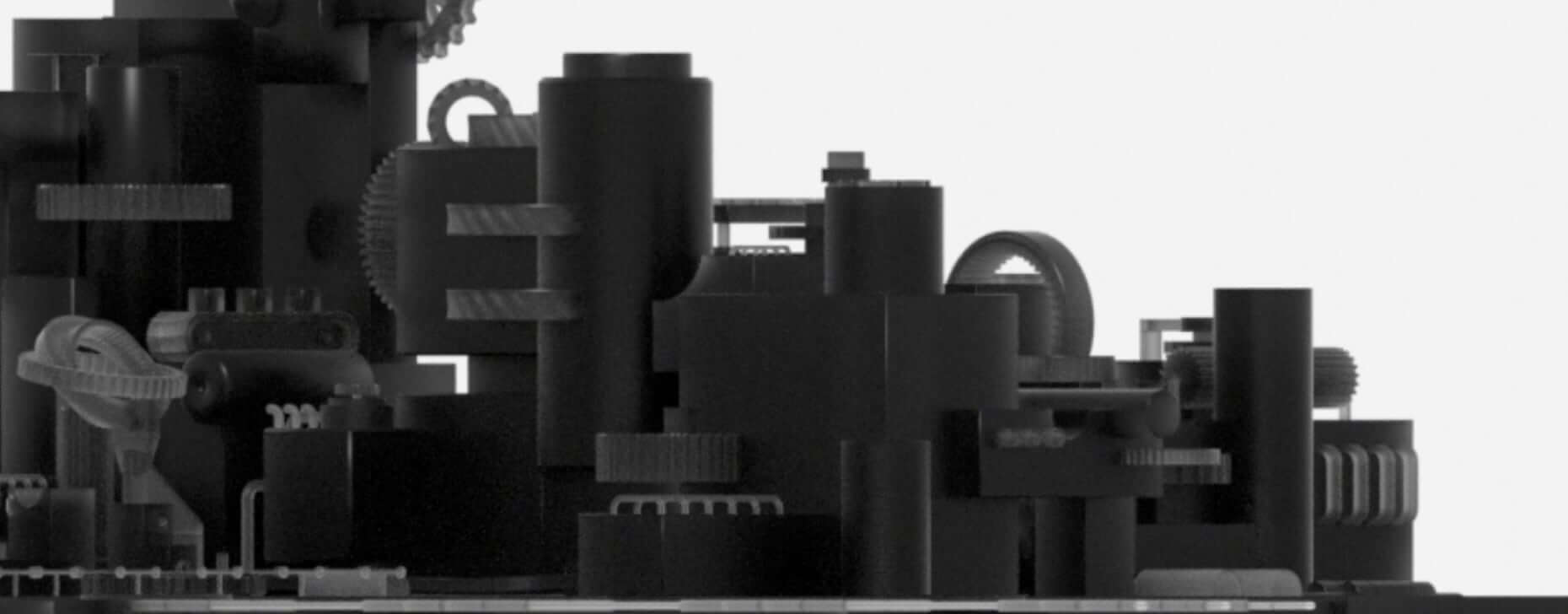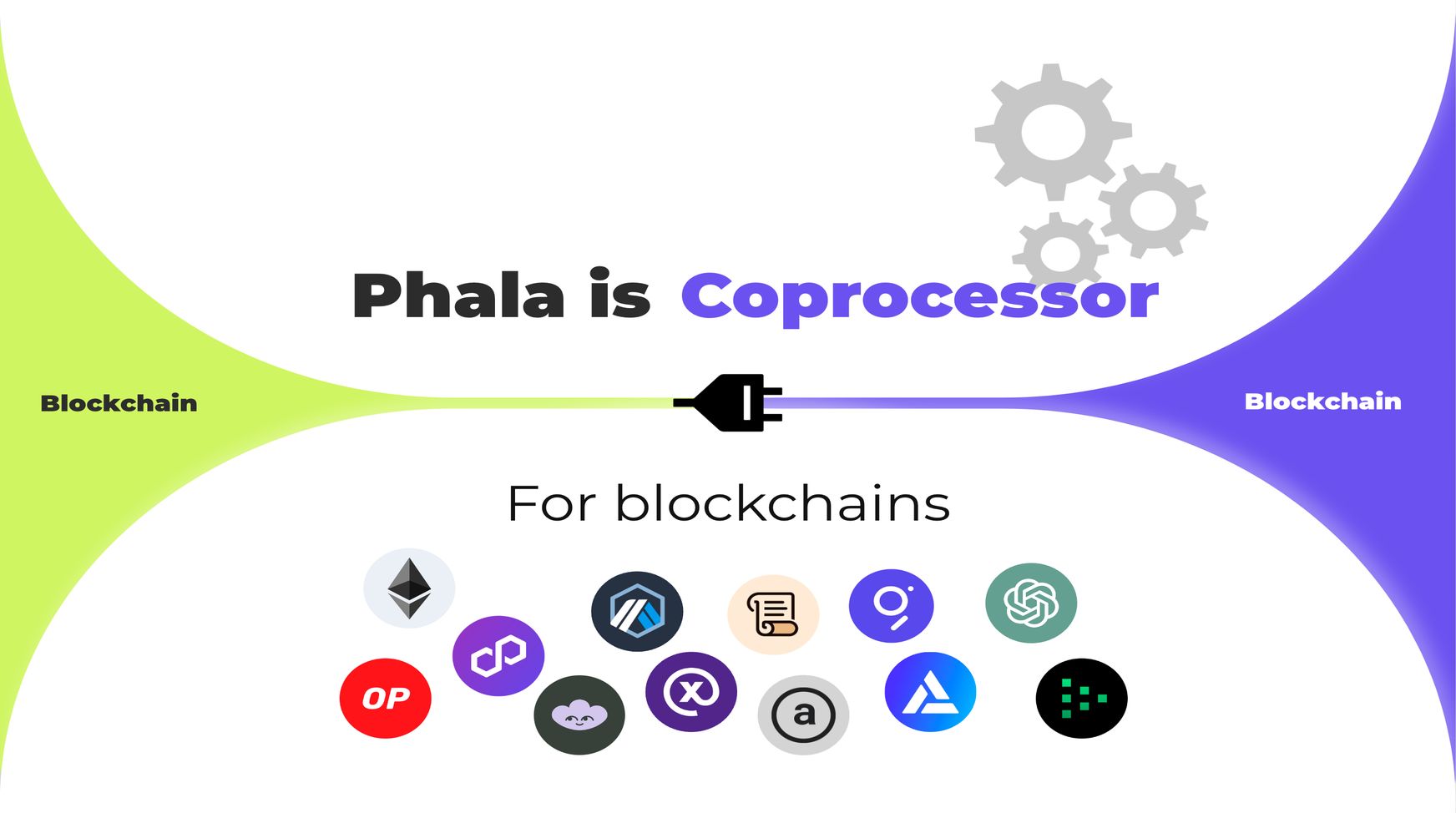
What is Coprocessor?
2024-02-22
TL;DR
A coprocessor, like Phat Contracts, is blockchain's superhero sidekick, boosting efficiency. It collaborates with blockchains, offloading complex tasks off-chain via zero-knowledge proofs (ZKP) and Multi-Party Computation (MPC) with Software Guard Extensions (SGX), enhancing security and scalability. Ethereum, the blockchain generalist, faces limitations, but coprocessors like Phat Contracts bridge the gaps, offering enhanced scalability, gasless experiences, and multi-chain support. Phat Contracts enable secure data access, processing, and usage, with ZKPs and MPC with SGX for trust. They empower developers to build efficient, secure, and privacy-focused decentralized applications (dApps).
Introduction
Imagine your computer as a superhero, capable of handling everyday tasks efficiently. Now, picture a coprocessor as its trusted sidekick, possessing unique skills to tackle specific, resource-intensive challenges. In the world of computing, coprocessors, like GPUs (Graphics Processing Units), are superheroes' sidekicks, enhancing efficiency by handling specialized tasks. But what if we told you that the blockchain world has its own superhero duo? Enter Phala Network, the coprocessor of the blockchain, helping supercharged smart contracts called Phat Contracts perform complex tasks off-chain to save costs and enhance efficiency.
The Basics of Coprocessors in Blockchain
In the blockchain context, a coprocessor, exemplified by Smart Contracts, collaborates with blockchains to offload complex computations to an off-chain layer. This is achieved through the power of ZKPs and MPC with SGX, ensuring data validation with privacy. This strategic move enhances security, scalability, and reduces costs by separating data access and computation from blockchain consensus. The result? An overall boost in efficiency for blockchain networks.
Challenges in Coprocessing: Ethereum's Generalist CPU
Much like a versatile generalist CPU, Ethereum accommodates a wide range of decentralized applications (dApps). However, it faces limitations in accessing external APIs and handling complex, computationally intensive tasks. These limitations stem from technical challenges, making Ethereum less effective for some dApps. In response, developers often resort to offloading certain dApp components off-chain, turning to solutions like Axiom and Hyper Oracle.
Bridging the Gaps with Phat Contracts
These limitations underscore the need for a new primitive - coprocessors. Coprocessors, such as Phat Contracts in the blockchain context, address critical gaps:
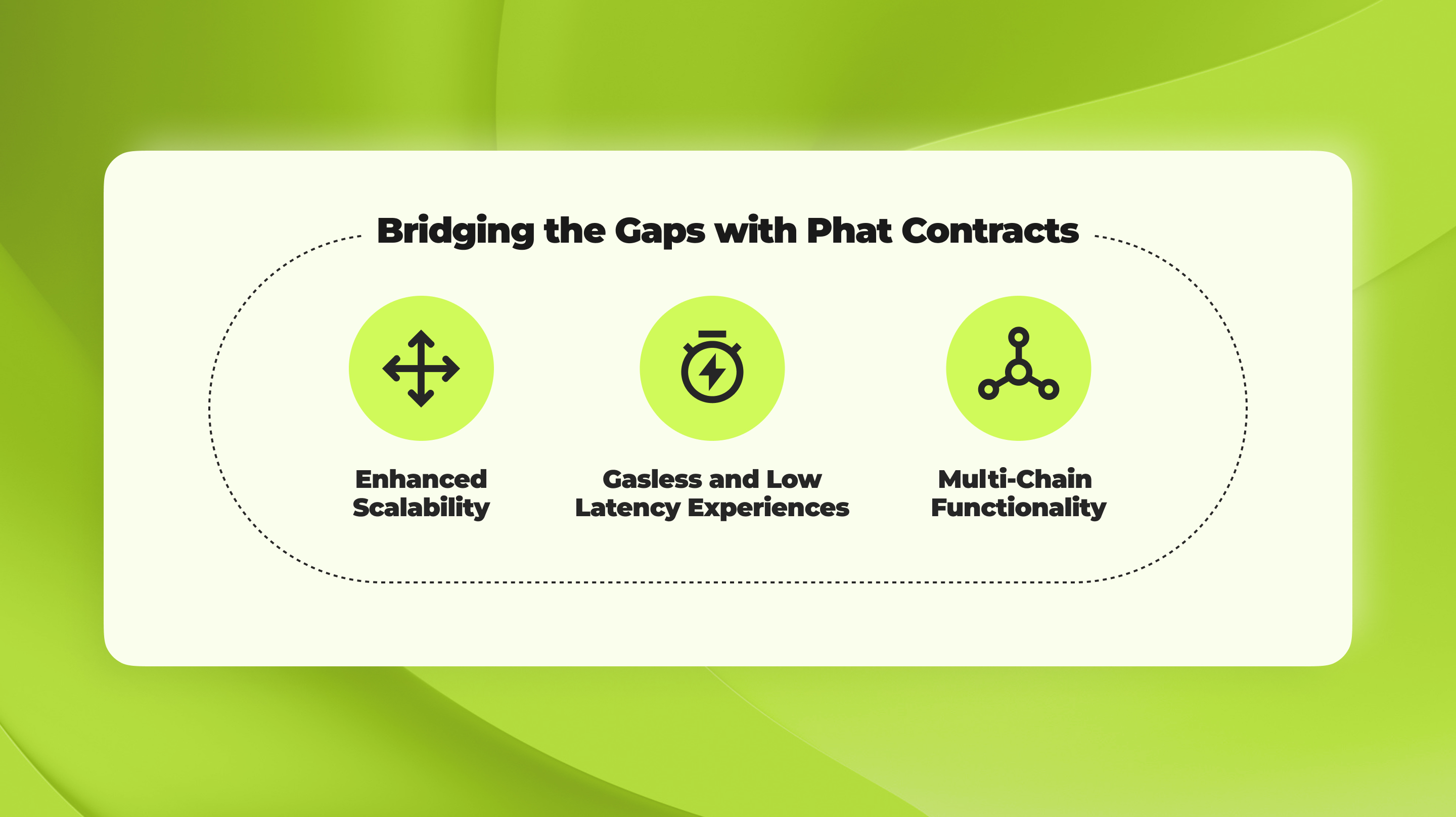
- Enhanced Scalability: Coprocessors turbocharge scalability, enabling gasless/low-latency experiences and supporting multi-chain functionalities.
- Gasless and Low-Latency Experiences: Coprocessors like Phat Contracts facilitate gasless, low-latency interactions, offering users a seamless experience.
- Multi-Chain Functionality: In an interconnected blockchain ecosystem, the demand for increased processing power escalates, making coprocessors essential for the future of dApps.
Accessing Blockchain Data with Coprocessors
To bridge the gap, it's vital to understand how data is accessed, processed, and used with the help of Phat Contracts.

Let's delve deeper:
Data Access: Phat Contracts serve as a bridge between blockchain networks and off-chain data sources, offering flexibility, security, and interoperability to modern dApps. It achieves this through:
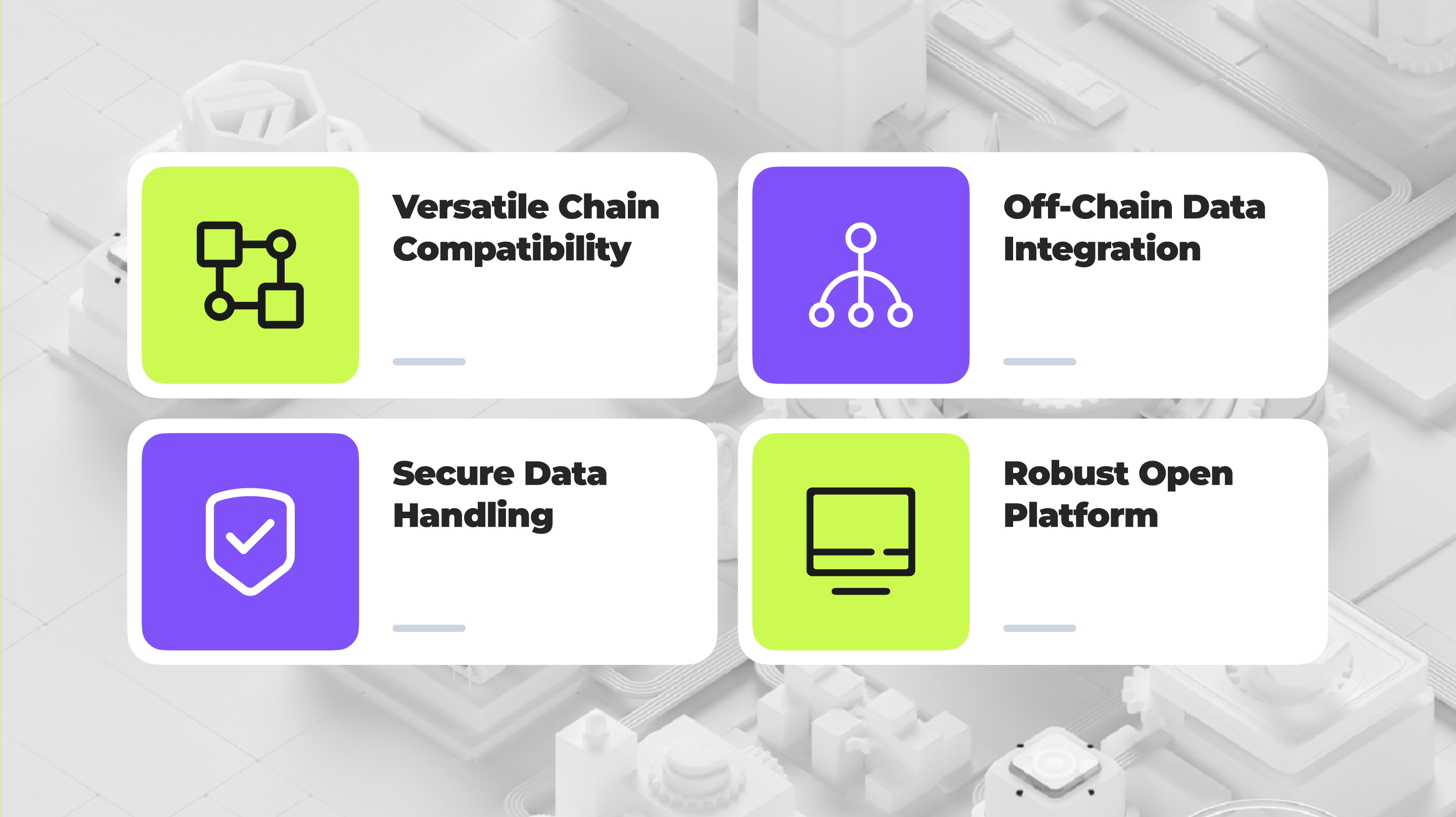
- Versatile Chain Compatibility: Seamlessly connecting to any blockchain, Phat Contracts support multiple chains, facilitating data access across the blockchain landscape.
- Off-Chain Data Integration: Phat Contracts enable blockchain developers to access, connect, and verify off-chain data, enriching smart contract functionality.
- Secure Data Handling: Employing advanced cryptographic methods, such as ZKPs and MPC with SGX, Phat Contracts ensure secure data handling, preserving privacy and security.
- Robust Open Platform: Phala Network emphasizes reusability and provides a robust open platform for developers to collaborate and innovate, accelerating the development of decentralized applications.
Phat Contracts, unlike Axiom, support any EVM via The Graph indexer, empowering developers to build dApps with complex logic, ensuring smart contract security, and providing a global and censorship-resistant execution environment.
Data Processing: Phat Contracts serve as efficient coprocessors, enhancing smart contract capabilities in the evolving blockchain landscape. This involves:
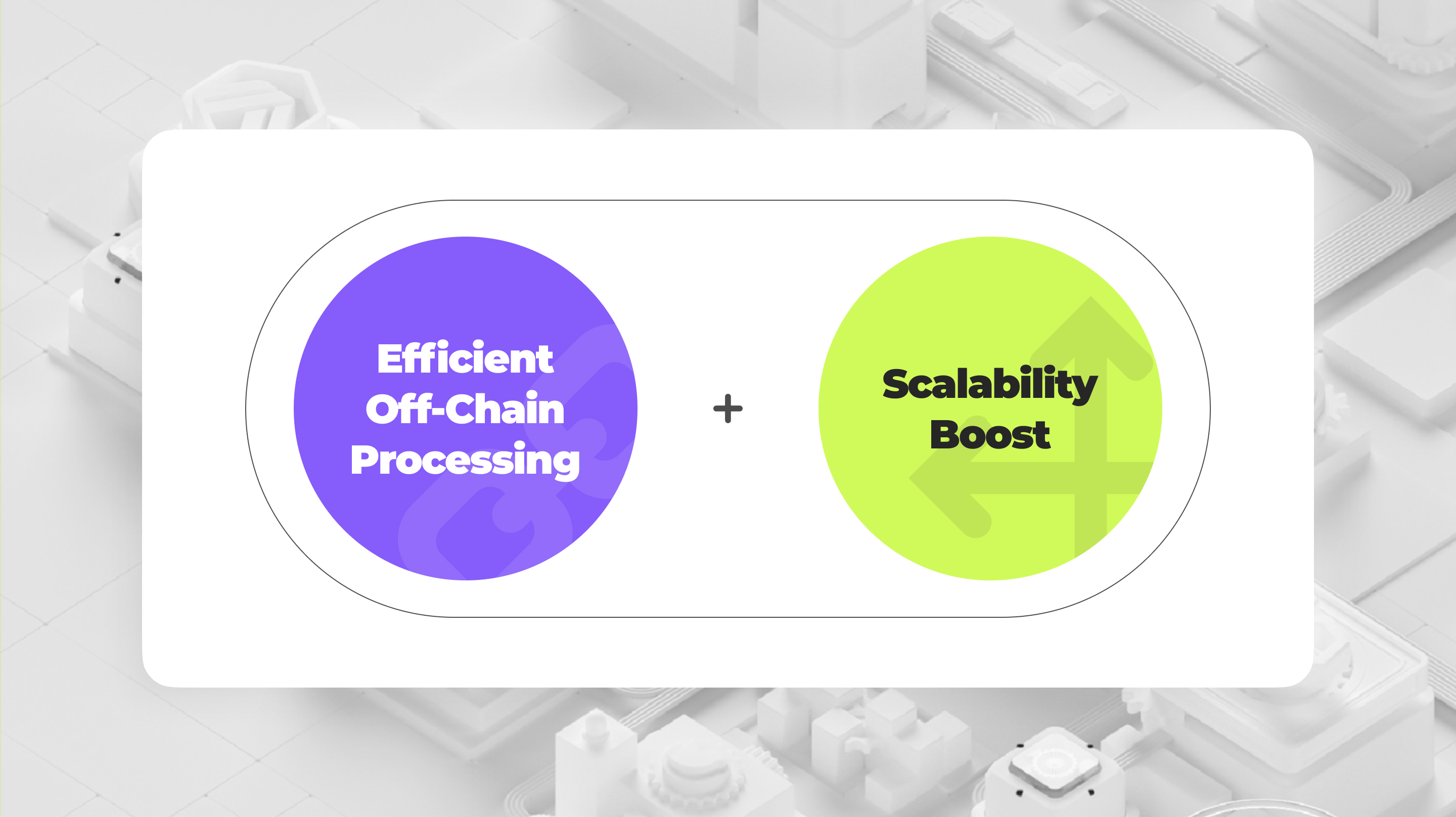
- Efficient Off-Chain Processing: Handling resource-intensive tasks off-chain improves data processing efficiency.
- Scalability Boost: Offloading complex computations to Phat Contracts accommodates the growing data demands of dApps.
Data Usage and Trust Assumptions: Phat Contracts empower developers to access and integrate blockchain data into their dApps through customizable, trustless, and secure off-chain programs. ZKPs and MPC with SGX enhance trust by ensuring data privacy, integrity, and confidentiality:
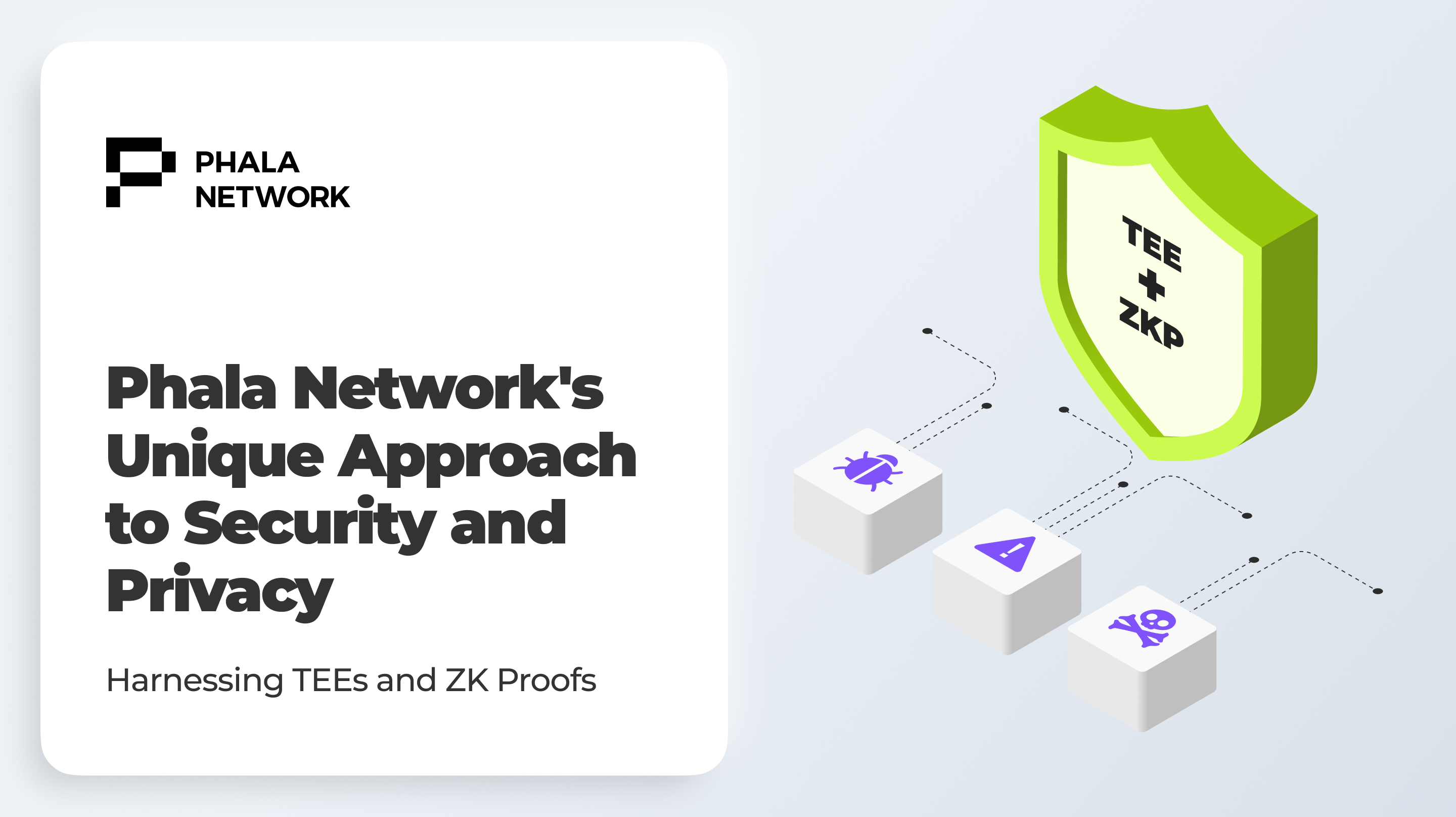
- ZKPs: Validate computations without revealing sensitive data, ensuring secure and verifiable data processing.
- MPC with SGX: Collaboratively compute functions without exposing data, enhancing the trustworthiness of data computations.
Conclusion
In the ever-evolving world of blockchain technology, coprocessors like Phat Contracts play a crucial role as the sidekicks to blockchain's superheroes. They enhance efficiency by offloading complex tasks, ensuring data security, and boosting scalability.
Ethereum, a versatile generalist, encounters limitations, but coprocessors are here to bridge the gaps. Phat Contracts, for instance, offer enhanced scalability, gasless experiences, and multi-chain support, making them indispensable in the future of decentralized applications.
Phat Contracts also empower developers to access, process, and utilize blockchain data securely and efficiently. With ZKPs and MPC with SGX, they ensure trust, privacy, and integrity in data handling.
In a rapidly evolving blockchain landscape, coprocessors like Phat Contracts provide the tools and capabilities needed to build efficient, secure, and privacy-focused decentralized applications, making them a fundamental part of blockchain innovation.
